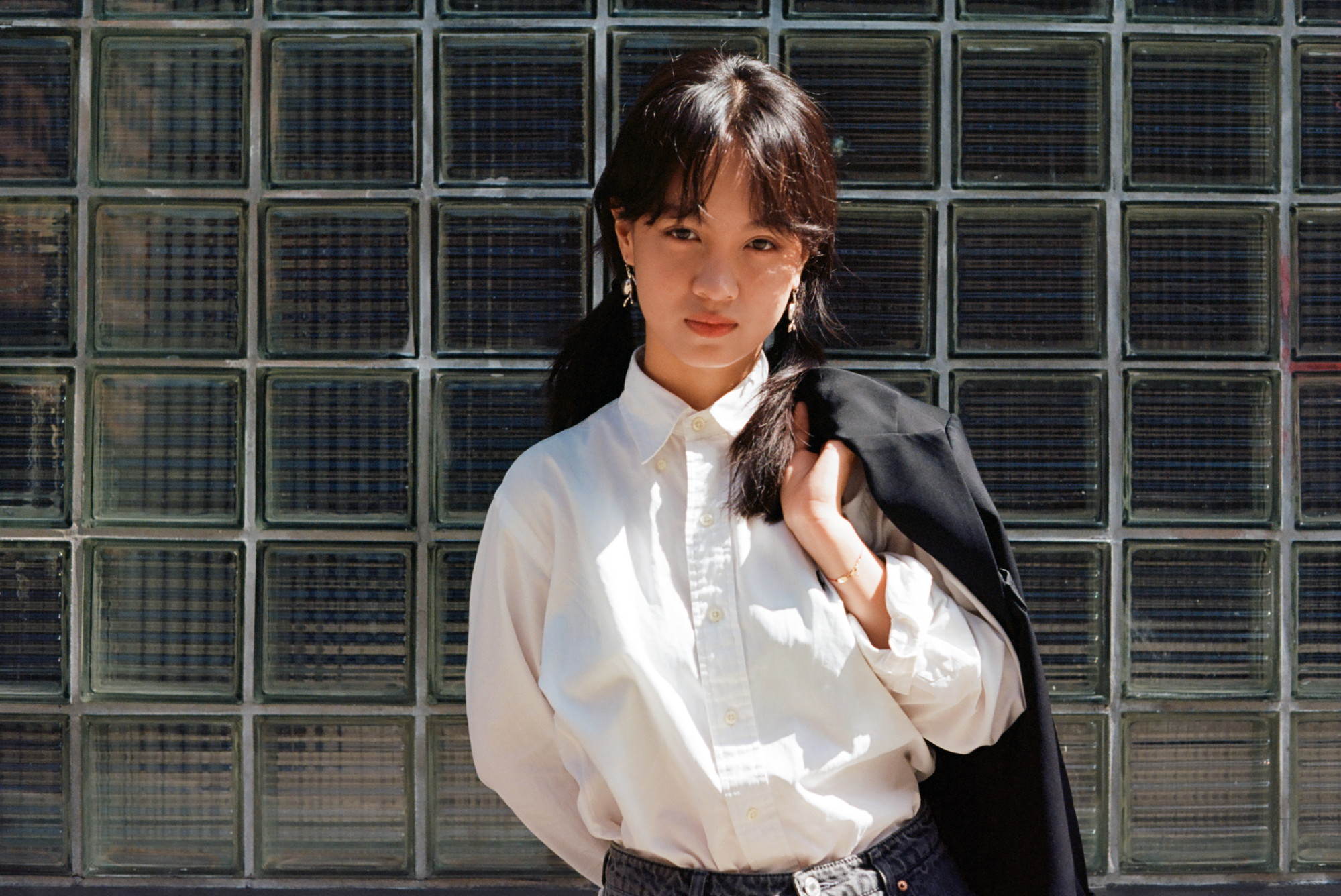Lucie Zhang is a native Parisian, but she still feels like an out-of-towner in the city of light. The 22-year-old actress likes to people-watch and take notes like a devoted student, devising theories about the French national character. “We want to smoke a cigarette and we want to be aloof,” she lists. “We love elusiveness.” She partakes in the brooding when she sees fit — but not too much. “I’m not that mysterious,” she says. “I share everything.”
It’s her openness and vulnerability — her willingness to bare it all — that captivates your attention far beyond a 100-minute runtime. Her film debut, in Jacques Audiard’s 2021 film Paris, 13th District, announced the arrival of a star. Her performance earned her nominations for the César Award and the Lumières Award — two of the most prestigious honors in the French film industry.
French cinema has given us many French girls: femme fatales, ingenues and coquettes. But it rarely finds someone like Lucie — someone unapologetically from two places at once, constantly in motion, spurred on by the restlessness that comes with being rootless. In the two years since her debut, she’s been busy working with filmmakers like Thomas Lilti and Arnaud Despallieres in France, and this summer, with Eve Liu in New York. “The city was so big that I felt so small,” she says of the latter. “But I love to feel small, because feeling small pushes me forward.”
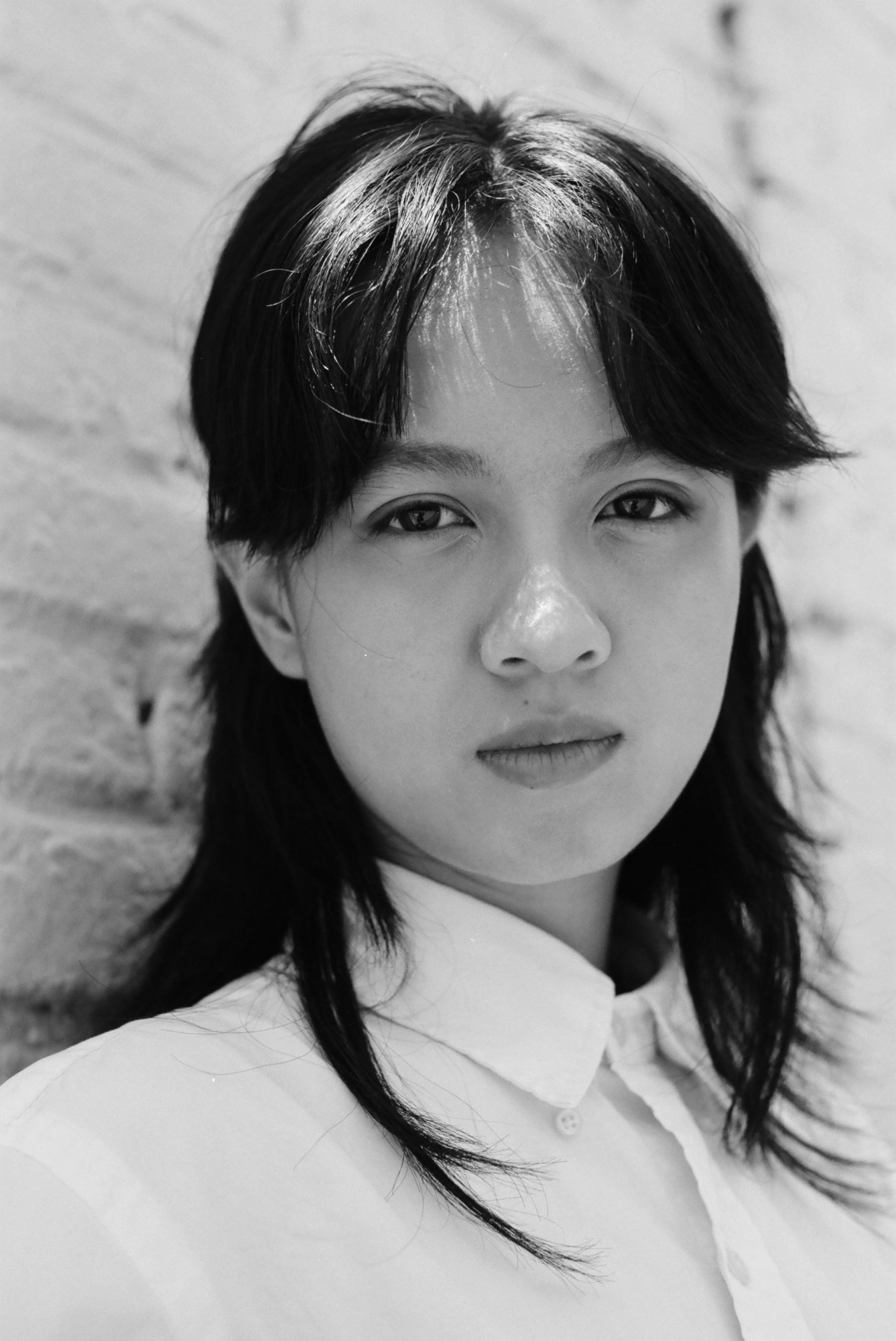
Born in Paris to Chinese immigrant parents, Lucie spent her early childhood in China — a period she calls the “best moment of my life.” After she moved back to Paris for her final year of kindergarten, she was bullied and felt alienated at school, something that still follows her to this day. “I’ve never felt like I was completely French, and I never felt like I was completely integrated in this society,” she says.
She went on to study economic management at Paris Dauphine University, while harboring an interest in film. When the pandemic hit, she felt stuck, desperate for a creative outlet. “Inside, I felt something burning,” she says. Then, her friends sent her a casting call on Instagram for a Jacques Audiard movie. “When I saw it, I just told myself, either I do it, or I’m gonna die,” she says. “And I don’t want to die. So I’m gonna do it.” Lucie met with the casting director, who turned her down twice, thinking she was too young for the part. However, months later, she got a call back and an invitation to meet with Jacques himself. After seeing Lucie interact with the other actors in rehearsal, he cast her in the role of Émilie.
Paris, 13th District, written and directed by Jacques, was co-written by Céline Sciamma and Léa Mysius, based on comics by the Japanese-American graphic novelist Adrian Tomine. The film follows a love triangle-slash-square bringing together a group of young, adrift Parisians. A Rohmerian moral tale with echoes of Ira Sachs’ Passages and Davy Chou’s Return to Seoul, Paris, 13th District is a sexy situationship drama shot in black-and-white and soundtracked by techno. It shows an alienating Paris where miscommunications abound — thanks, in part, to the Parisian aloofness Lucie describes.
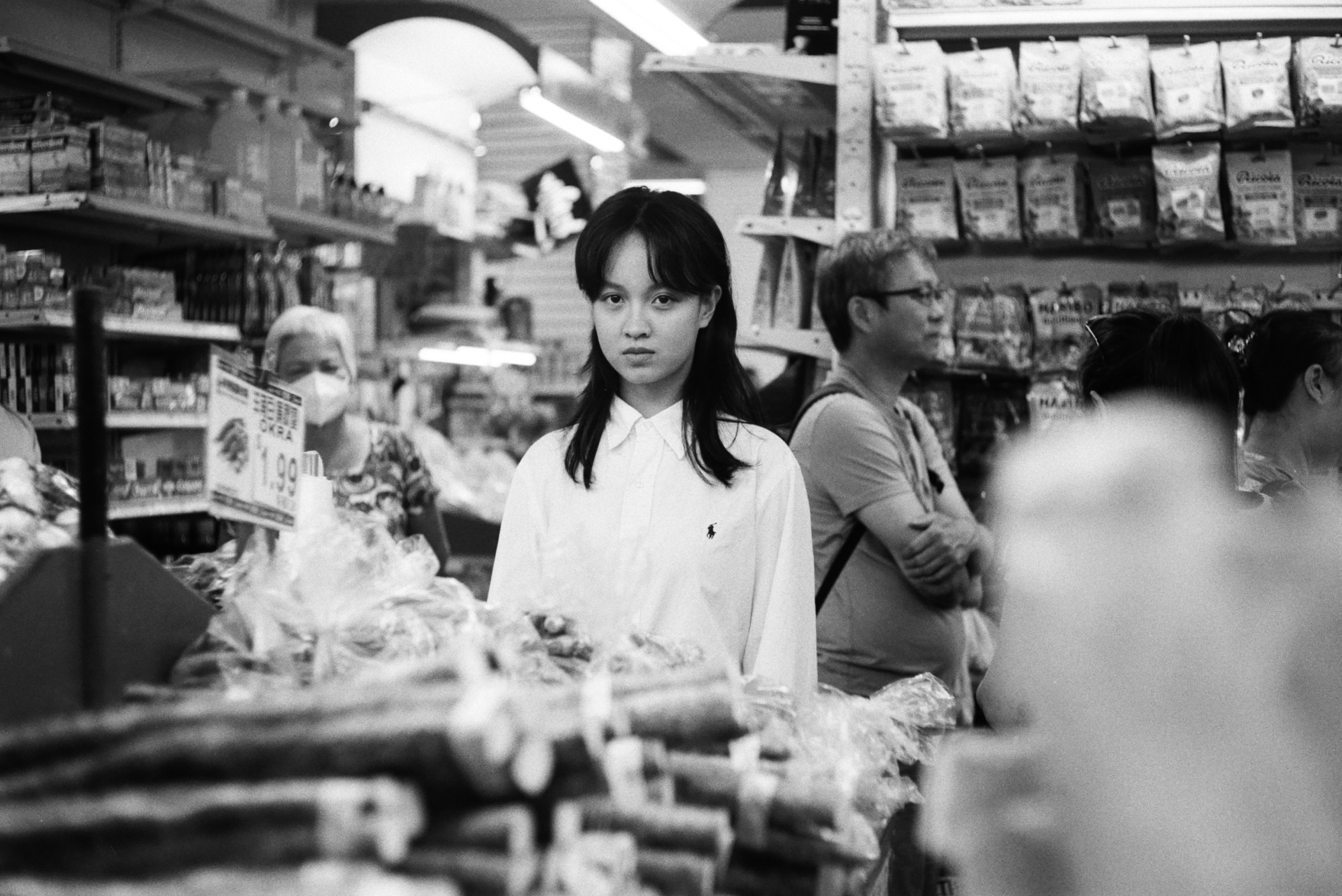
Émilie, like Lucie, slips seamlessly between the worlds of Chinese restaurants and French bistros, between Mandopop and MDMA. But Lucie, who describes herself as being obstructed by a “filter of introversion,” had trouble tapping into the bold, blunt character — so she went method. In front of her family and friends, she would slam drinking glasses on tables, talk back at people, behave like someone else. Her family put a stop to it: “They said, ‘don’t use us,’” she says. “We don’t know if you’re here. We think it’s you. You’re becoming so many different people and it’s a psychological issue.”
The disagreement with her family acquainted her more with the feeling of loneliness. Lucie felt wěi qū, she says in Chinese, a term meaning aggrieved or wronged. “I just couldn’t understand how they couldn’t understand me,” she says. It took some time, but she’s since been able to find peace in solitude. “You’re made to be not understood when you’re an artist,” Lucie says. “This is when it really begins — when you realize that you will be lonely, and this journey is the loneliest journey ever.”
Maybe that’s why Lucie fell in love with New York, a city that has always sparkled differently in the eyes of the lonely and searching. She spent over a month there, training at an acting studio and working on the short film Nervous Energy. Written and directed by Eve Liu, the film follows two female filmmakers who make a bold decision with their lives: they freeze their eggs and break up with their boyfriends, in order to fully devote themselves to their art. “They understood stasis as the death of art,” Lucie quotes from the film. Nervous Energy is described as a stylized comedy, and Lucie teases elements of wuxia — the action genre that features superhuman martial artists in ancient China.
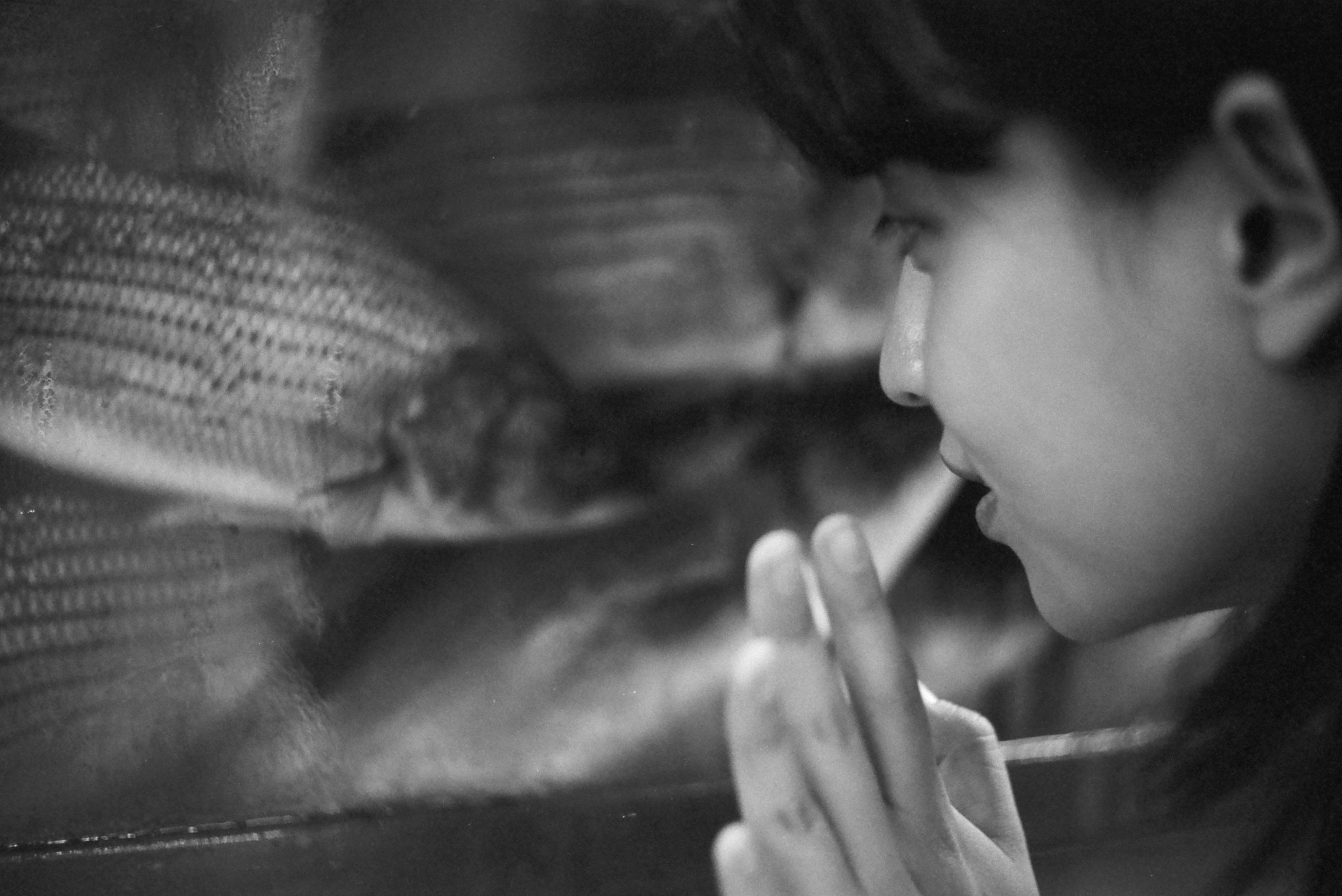
Eve reached out to Lucie via WeChat, initially, through mutual friends. And Lucie loved the script: “Whenever it’s something very personal to the director, without mistake, I can feel it,” she says. She apolagizes, as “without mistake” is a French expression, and supplements a more American one: “I can 100% feel it.”
She arrived in New York an INFP on the Myers-Brigg test — a mediator. To get in character, Lucie had to learn to walk like a New Yorker — to look “unbothered.” So she walked and walked and walked, discovering gems like the Hong Kong Supermarket of Chinatown while listening to soundtracks from Wong Kar-wai films. As an exercise at the acting studio, she had to lose control of her body and dance. “Move however you want, however you feel,” she says. “The only rule was to go out and not in.” When she met up with an old Parisian friend in New York, they remarked on feelings different from their Parisian selves. They took the test again together, and this time, Lucie was an ENTP — a debater. Somehow, Lucie’s time in New York turned her into an extrovert.
If stasis is the death of art, Lucie is safe. Nervous Energy is her first American project, and she has multiple French films releasing soon, including Thomas Lilti’s A Real Job, starring Adèle Exarchopoulos. Going forward, Lucie plans to work on more international projects — her dream collaborators include Park Chan-wook, Hong Sang-soo and Zhang Yimou. With Asian directors, “I think we can go deeper,” Lucie says. And of course, she would love to be a wuxia heroine.
Now back in Paris, Lucie’s INFP personality has taken over again. When she does find a moment between films, she’ll daydream about going back to New York. Or Asia. Or anywhere. “I will definitely not be stuck here in Paris. I won’t leave forever, either,” she says. “So I think I’ll move, just move. I’m not sure where yet, but I’ll move.”
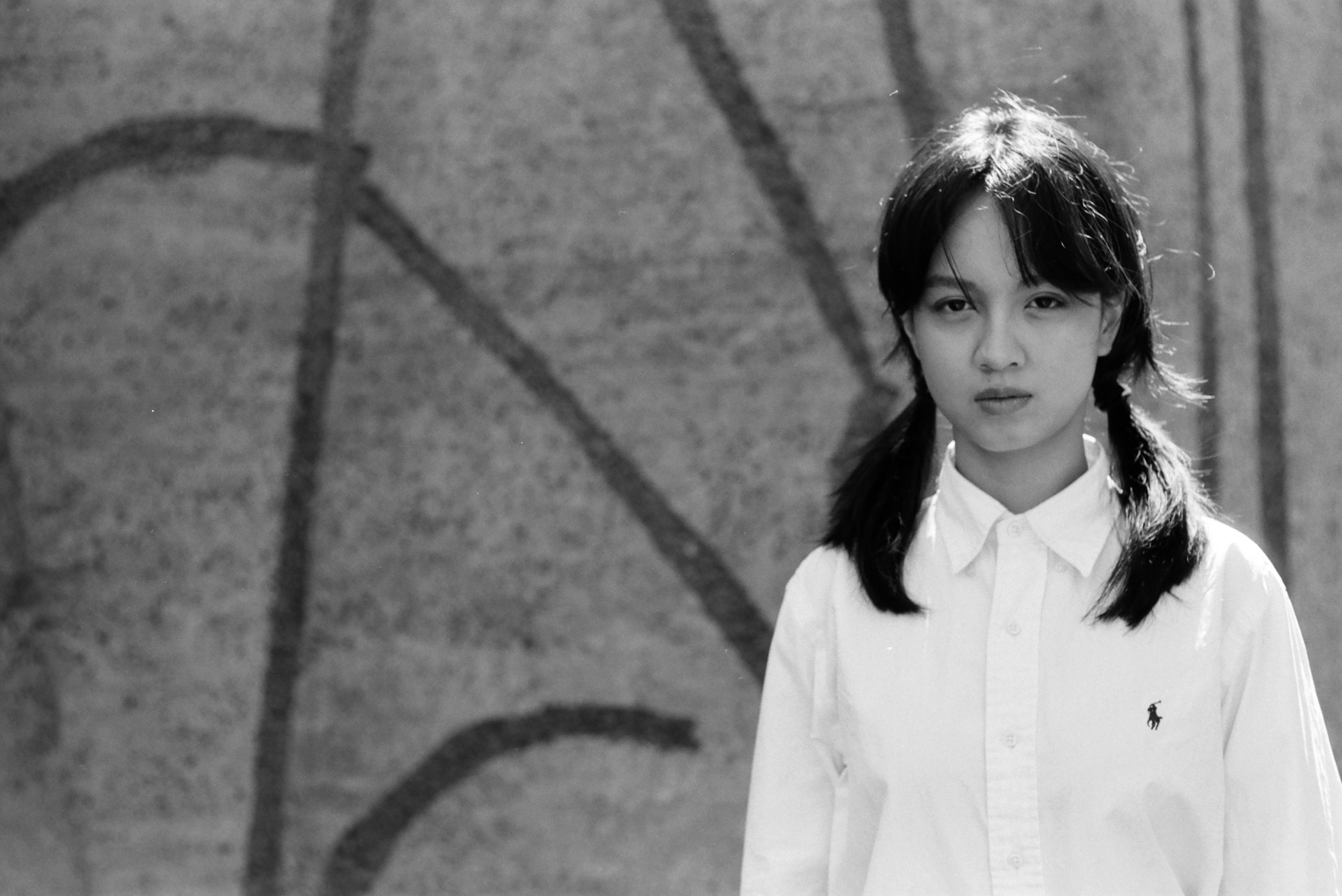
Credits
Photography Sofia Camargo
